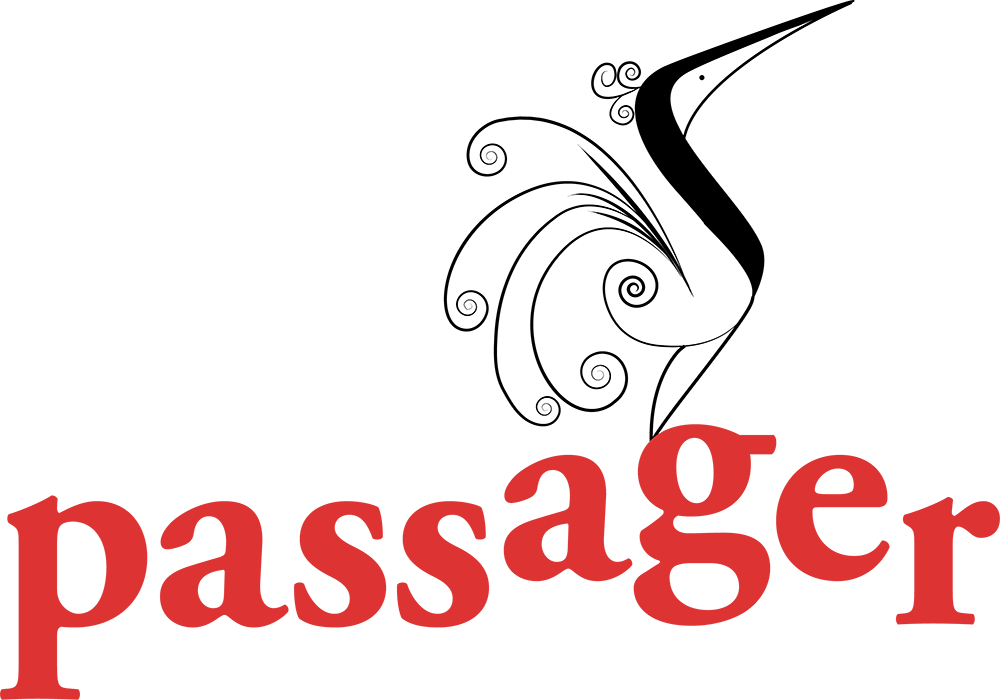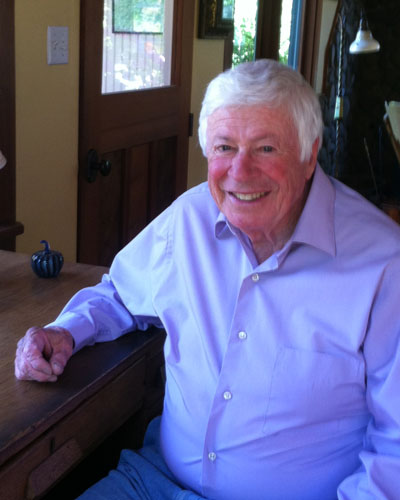Key Bridge



Resistance and resilience, featuring work by Roy Cheng Tsung, John Glowney and Penelope Scambly Schott.
7 minutes
TRANSCRIPT
I’m sure you know that Baltimore’s Francis Scott Key Bridge collapsed a couple weeks ago after being hit by a cargo ship. We Passagerians are all fine, thank you, but the consequences just keep rippling out: from the deaths of the six people that were repairing the bridge’s pavement that night to the detours and rerouting of traffic, to the indefinite closing of most of Baltimore’s industrial harbor and the consequential loss of jobs, to the loss of tolls and taxes for the city and state, to the inconvenience to people all over the country who will have to wait longer for all those cars and farm equipment and on and on that entered the country through the Baltimore harbor. In short, what a mess! So what do you do when your routine, your world is turned upside down and you have to rethink everything you were used to?
We’ll start by crossing a literal bridge. When Roy Cheng Tsung was a child, his father moved the family from New York, where Roy had grown up, back to communist China. Here’s an excerpt from Roy’s book Beyond Lowu Bridge.
The bridge was not long. It was a simple structure of wood and concrete with railway tracks. A white demarcation line ran across the middle. There were no modern buildings on the Chinese side. The land looked barren and rural. Behind the Chinese border guards, a five-star red flag fluttered from the top of its tall staff. We were promptly marched off to a small outpost structure near the checkpoint and lined up against the wall. A grim British officer with dark glasses came out and looked us over. Across Lowu Bridge stood solemn Chinese guards in olive green. One of them was holding a large automatic weapon with holes in the barrel.
An excerpt from Roy Cheng Tsung’s memoir Beyond Lowu Bridge.
Sometimes, even though you’re not interested in something new, something new might surprise you. John Glowney’s poem “Mom in Florida.”
Mom isn’t so sure Florida is for her.
All those bitter Michigan winters. You can buy
the ticket, and when the plane
touches down she’ll still be bundled
in a wool coat, gloves, and when everyone
steps out onto the hot tarmac she still
leans a little against the sharp icy edge of wind
slicing across her cheek. She can’t put a word
to it, the slack warm air. It is something
about lying fallow under snow, the fields
of fallen corn-stalks churning back
down, leaf, root, all, discretely returning. When
her husband passed she gave
him back, laid his useful body
in the hillside cemetery. Here, young girls
lay, glistening limbs upon colorful towels,
on acres of blasted sand from which
you couldn’t coax a garden,
let alone a lonely green sprout. It’s all
shops and parking lots. Stroll the boardwalk,
buy the kids soft drinks, then sit and watch
the surfers far out. The diamond-tipped
Atlantic sways her a little,
its great heaving flesh reminding her
of the wide fields of golden wheat
in August. But when everyone is ready
to leave, mostly she wants to go back
to the hotel, and sleep, and so
you have to give up, and head off
to Disney without her, while she
makes her way to the air-conditioned
room, where she can’t find
enough blankets, and lies on the bed
shivering with something akin to pleasure.
John Glowney’s poem “Mom in Florida” from Passager’s 2007 Poetry Contest issue.
And then, after a while, awful as it was, with some distance, we gain new perspective. From Passager’s 2020 Poetry Contest issue, Penelope Scambly Schott’s “Report from the Future.”
I’m the oldest woman in the world.
Or make that the oldest human.
Men mostly died in the wars:
husbands, brothers,
fathers, sons.
My last living great-great-grandson
died yesterday. A sweet boy.
I had thought he was happy
until he stabbed himself
with a stone knife.
The oldest sturgeon alive in the river
is only one hundred and sixty-two.
She asks about the long Before.
I re-count the Bloody Years.
She believes me.
There are a few turtles as old as I am.
And some trees. I chat with the trees.
They make excellent company.
Trees are savvy
and also witty.
Walking around is highly over-rated,
they say. Their great-grandparents
once shaded the mammoths.
Big, say the trees. Enormo.
Mammoth.
The trees and I find that joke hilarious.
You need a sense of humor to live
as long as we have. I survive
by nibbling the moon.
It grows back.
We’ll end tonight’s podcast where we began, with Roy Cheng Tsung.
I reluctantly followed my mother across the bridge . . . My mother surrendered her passport. It had a red diplomatic cover and bore the Chinese Nationalist Government emblem. I looked over my shoulder and glanced back at the other end of the bridge. With fists on hips, the grim British officer stood beneath the Union Jack, observing us through his dark glasses . . . As I stood on the small wooden bridge, I stole one last glimpse of the outside world.
To buy Roy Cheng Tsung’s book Beyond Lowu Bridge, subscribe to, or learn more about Passager and its commitment to writers over 50, go to passagerbooks.com. You can download Burning Bright from Spotify, Apple and Google Podcasts and various other podcast apps.
For Kendra, Mary, Christine, Rosanne, and the rest of the Passager staff, I’m Jon Shorr.



